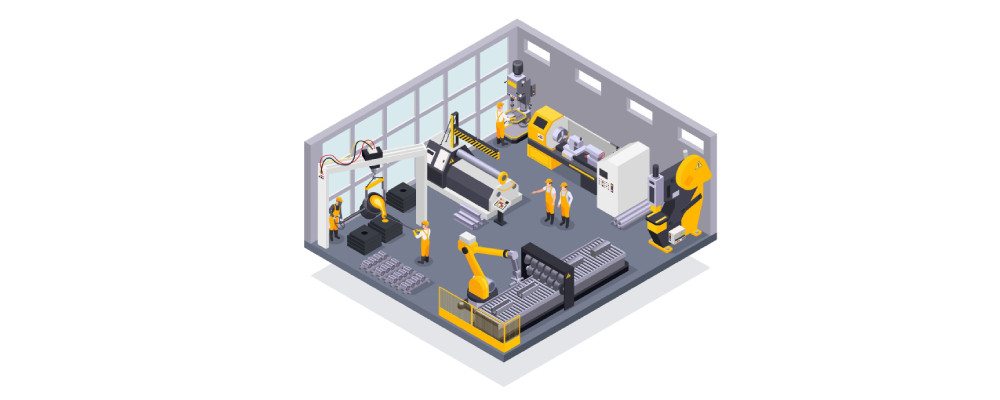
ERP (Enterprise Resource Planning) software can be a game-changer for metal fabrication businesses, helping streamline operations, improve efficiency, and ensure better decision-making. Here's how ERP has transformed metal fabrication at Eterna:
1. Improved Inventory Management
Metal fabrication involves managing large amounts of raw materials, such as metals, welding supplies, and other components. ERP systems at Eterna provide tracking, reducing overstocking, minimizing waste, and ensuring the right amount of materials are available when needed. This ensures that production stays on schedule without interruptions due to stock shortages.
2. Streamlined Production Scheduling
ERP software can automate production schedules based on real-time data, customer orders, and material availability. It ensures that resources are efficiently allocated, machine downtime is minimized, and production is optimized. It also helps in tracking job status, preventing delays, and improving lead times.
3. Enhanced Quality Control
Consistency and quality are key in metal fabrication. ERP systems at Eterna monitor quality throughout the production process by tracking inspection reports, quality control tests, and compliance with industry standards. If any issues arise, the system notify teams to take corrective actions immediately, ensuring high-quality output.
4. Cost Tracking and Control
Fabrication businesses deal with fluctuating costs for raw materials, labour, and overhead. ERP software at Eterna tracks these costs in real-time, providing transparency and allowing businesses to identify inefficiencies. By analysing these costs, we optimize our processes, negotiate better deals with suppliers, and ensure that margins remain profitable.
5. Better Project Management
Metal fabrication projects often involve multiple tasks, deadlines, and teams. ERP software at Eterna can consolidate project details into a single dashboard, helping managers track timelines, resources, budgets, and progress. This centralized system ensures that projects stay on track and are completed within budget and on time.
6. Streamlined Procurement
ERP systems help Eterna manage supplier relationships by automating the procurement process. This includes tracking supplier performance, ensuring on-time delivery of raw materials, and managing purchase orders. It helps avoid stockouts, reduce excess inventory, and optimize the purchasing process.
7. Enhanced Financial Management
ERP integrates financial functions like accounting, billing, and budgeting with other business processes, ensuring accurate financial reporting. By tracking income, expenses, and cost of goods sold in real-time, ERP systems provide pivotal insights into the financial health of our business and aid in making strategic decisions.
8. Improved Customer Relationship Management (CRM)
ERP systems at Eterna include CRM capabilities, helping metal fabrication businesses manage customer relationships. The software tracks customer orders, communication, and feedback. This leads to better customer service, timely deliveries, and stronger relationships, which are key for repeat business.
9. Data-Driven Decision Making
With real-time data from every aspect of the business, ERP systems provide valuable insights to Top Level Management that help us plan better. These insights allow businesses to forecast demand, plan for growth, identify bottlenecks, and develop strategies to stay ahead of competitors.
10. Compliance and Regulatory Management
Metal fabrication companies need to comply with industry standards and regulations. ERP software can help manage compliance by keeping track of certifications, audits, and regulatory requirements, ensuring that businesses meet all necessary legal standards and avoid costly fines.
Conclusion
By integrating all business processes into one system, ERP software has enabled us to enhance our operational efficiency, reduce costs, improve quality, and drive customer satisfaction. The result is a more streamlined, data-driven business that can respond quickly to market demands and changes.

